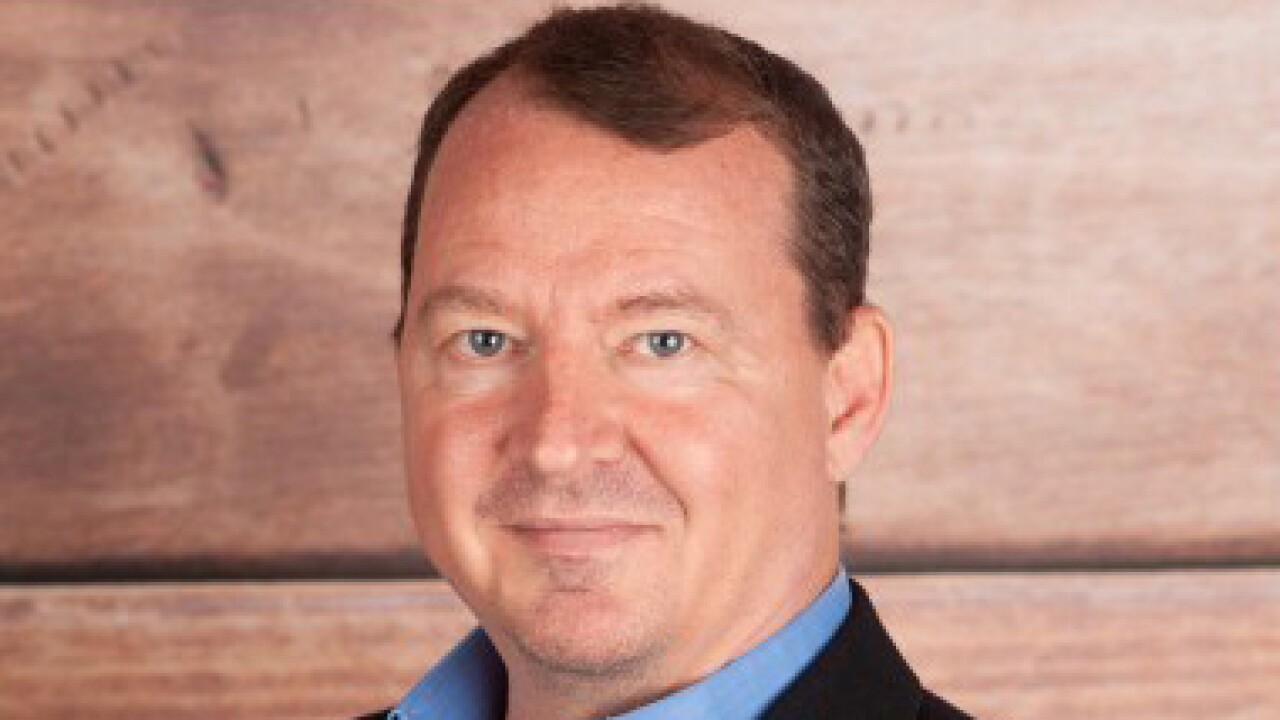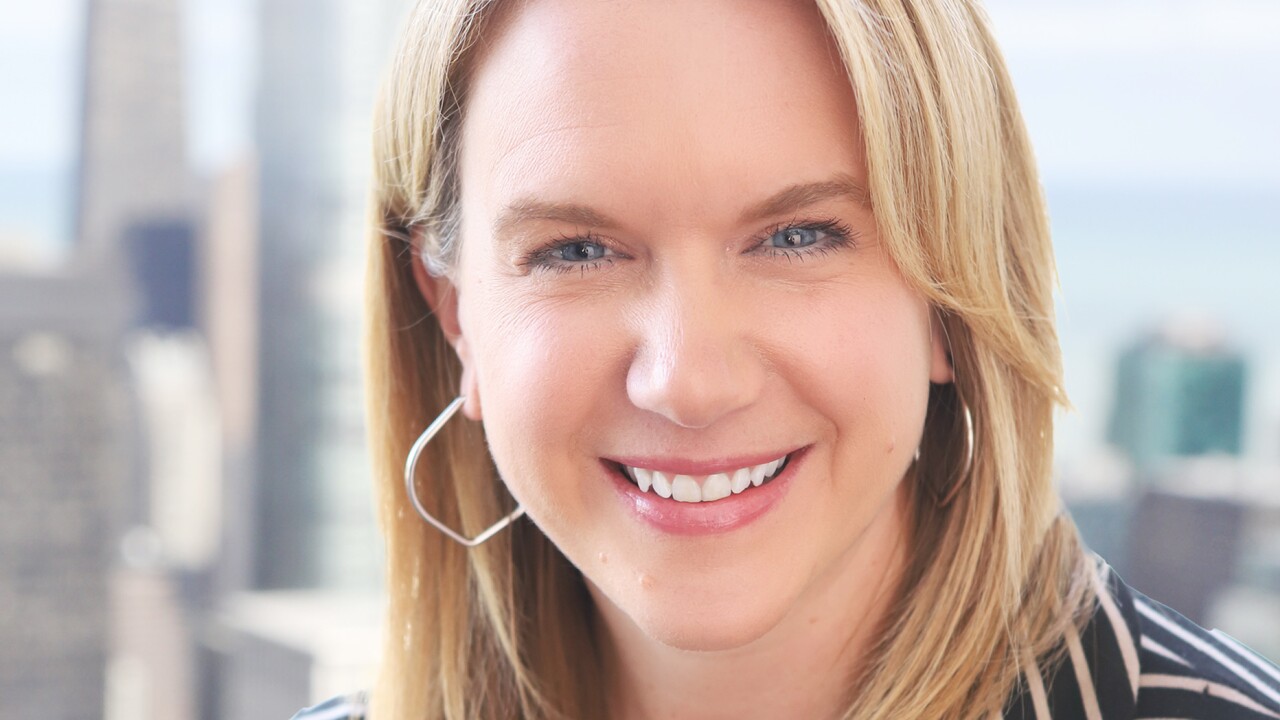Ramsey Hamadi had no idea when he was planning
The de novo opened in Greensboro, N.C.,
Triad Business Bank, which raised $50 million in start-up capital prior to opening, has benefited some from its newness. Its 23-person staff hasn’t been inundated with forbearance and loan-modification requests, which allowed it to quickly shift resources when it became qualified to participate in the Paycheck Protection Program.
The de novo has originated $108 million in PPP loans, assisting 350 small businesses in central North Carolina. That business has helped the bank bring in deposits, and should include more than $3 million in origination fees over time.

“With that in mind, all of this is temporary business,” Hamadi, the bank's chief executive, said of the program. “We’re still trying to begin focusing on our purpose, which was to provide ongoing loans and deposits to the business community.”
Hamadi discussed the program and traditional lending, along with his views of challenges for small businesses, in a recent interview. Here is an edited transcript.
How were you able to mobilize a response to the Paycheck Protection Program?
RAMSEY HAMADI: Almost as soon as we were approved to begin operating on March 16, we found ourselves in the position of trying to help with [PPP] loans. We’ve been very active in that program. It has really been our sole focus for the past two months.
We’re a small organization with 23 total people. We really had to shift our focus to closing the loans to opening the checking accounts and doing all the administrative work that we’re going to be doing all the way through the forgiveness portion.
We made one hugely important decision. We decided to partner with the Smith Leonard accounting firm in High Point. They just did extraordinary work helping us verify financials. They significantly improved our delivery and our capacity to handle the volume of loans we did.
We’ve continued to keep [our accountants] engaged because this is a process that will extend all the way through the forgiveness period and into next quarter.
With that in mind, all of this is temporary business. We’re still trying to begin focusing on our purpose, which was to provide ongoing loans and deposits to the business community in the Triad region [of Greensboro, Winston-Salem and High Point].
Did PPP introduce the bank to more potential customers than it would have seen in normal circumstances? How successful have you been with getting deposit relationships?
Every customer we talked to was a new customer. Because Paycheck Protection was our sole focus, because we weren’t modifying loans or trying to take care of the overwhelming number of customers an established bank would have in its portfolio, our delivery time on the loans was much faster.
Like every bank, we didn’t need to advertise for this program. It was simply word-of-mouth. The more loans we did, the more our name got passed around. Fortunately for us, more than half of our [PPP] loans fell into the target market of who we’re trying to serve, small-to-midsize customers with annual revenues between $5 million and $100 million.
I have told the board, in terms of advancing the bank, I think this experience advanced our strategic plan three to five years. Obviously, we didn’t get permanent loans out of this, but by far the more important and more valuable relationships are the core checking accounts of these businesses. The funding base is more valuable than the loan relationships and being able to access low-cost capital allows us to be a lender.
We funded all of our first round of loans by opening up a checking account and lending those funds to the borrower. Some of those customers immediately turned around and wired the funds to their existing bank, but I’d say the majority were so pleased with the work we did that I think many of those checking accounts will turn into primary deposit accounts.
Prior to the crisis, did SBA lending factor significantly into your business model? Have your plans changed due to the crisis?
It was not in our business plan to become an SBA 7(a) lender. The narrow focus of what a 7(a) lender is and does is outside what I thought we really wanted to accomplish as a small, boutique commercial lender in this market.
I think there’s some crossover experience. We do have 7(a) lending experience on our team. Now that we have access to the systems and are approved we may, from time to time, originate a 7(a) loan, but that’s not a business line we’re going to be focused on. We may incidentally do that, but that’s not part of our business plan.
Beyond PPP, what’s your view of the lending environment over the next few months?
We opened up with about a $60 million pipeline of commercial loans that were in different stages. Probably no more than a third of those were going to close within 60 days. That’s as we opened up. Some of those loans, the customers have decided to not do the project or [back off] whatever they were looking at. For the most part, I think customers have kind of paused.
There are a couple of [loans] we’ve looked at and talked to borrowers and said, "Listen, your world has changed so much that it probably doesn’t make sense to move forward, and we’re probably in a different place." There are a couple loans like that.
But the overwhelming number of customers we’ve talked to are still in position [to borrow]. The opportunities are there. Really, at this point, the customer has either paused or they’re waiting on us. We’re starting to close some of those loans now.
I think every banker I know is first focused on the immediate needs of the community. The immediate needs of the community are not necessarily the new business loans we’ve been looking at.
Do you see the coronavirus crisis forcing fundamental challenges for any businesses?
Some of those businesses in the hospitality industry, those are difficult and elevated credit risks in good environments. Lending becomes really difficult until the business is stabilized and comes back on line. I think it’s important for some of those [problems] to be solved in Washington.
It’s important that banks have the freedom under the troubled debt restructuring program to work with a customer longer than the current de minimus period that exists today. Right now, you can do a 90-day extension. When you start talking about the restaurant industry, there really needs to be a significant period of time where a bank can work with that customer.
There needs to be considerable latitude given to the banks … without the regulators and the banking industry having to call those problem assets.
Triad Business Bank is not going to be able to help restaurants with ordinary business loans. The hospitality industry, I don’t think we’ll be able to help. We have the benefit of being able to choose to make loans to businesses where there’s some transparency as to how they’re doing in the current environment.
Do you expect heightened competition?
There’s no such thing as an environment where there isn’t competition. Especially for good loans and good business. In 2008 and 2009, there were always homes for good loans. I think that will continue to be true.
I’ll tell you that the level of customer care right now across the spectrum is taxing the bank.

We’re a brand-new bank and we’re struggling just processing the PPP loans. We don’t have a portfolio of existing customers that we’re also having to serve. Established banks are having to modify credits. They’re being pulled in lots of different directions.
I think it is fair to say some banks are pulling back and becoming more conservative. We’re becoming more conservative in what we’re looking for now.
At its core, the PPP seems to have done what it was supposed to do, but I imagine it’s been very frustrating.
There’s no lender I know — no bank, no officer, no banker — that would have jumped into this program because of the joy of working through its uncertainties. I will tell you when we come out of this, I hope our employees and this industry are as enthusiastic about ongoing business as they have been about handling this program.
For my employees, to know that they have played a part in protecting the jobs for 12,000 people in the Triad, that is motivating. It’s meaningful. When you believe in something that is more than just a corporate goal, you rally around it.
If the banking industry wasn’t utilized to deliver these funds to the small-business community, there was no other conduit available. Yes, it’s interrupting banks’ business plans, it’s inconvenient, but at the end of the day, we’re all kind of in a battle together. I’m really proud of what we did. I’m really proud of what all the banks did.
Paul Davis contributed to this report.





